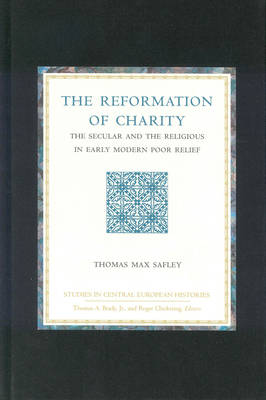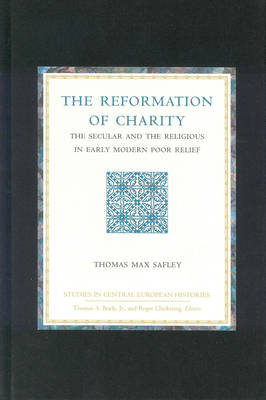
- Afhalen na 1 uur in een winkel met voorraad
- Gratis thuislevering in België vanaf € 30
- Ruim aanbod met 7 miljoen producten
- Afhalen na 1 uur in een winkel met voorraad
- Gratis thuislevering in België vanaf € 30
- Ruim aanbod met 7 miljoen producten
Zoeken
The Reformation of Charity
The Secular and the Religious in Early Modern Poor Relief
€ 245,95
+ 491 punten
Omschrijving
Early modern Europe witnessed changes in the social, political, and ecclesiastical structures supporting poor relief, but notions that sharp fault lines divide rationalized, secular poor relief from morally and spiritually motivated ecclesiastical charity need rethinking. Spiritual ideals shaped political and social poor relief structures just as much as rationalization and effective administration colored ecclesiastical charity efforts. Poor relief reflects a local community. A community's unique history, culture, political agenda, social mores, and religious ideals converge to shape how it responds to poverty, whatever the context: religious, political, or private (the élite). Sweeping statements and broad generalizations must be placed under the lamp of local circumstances. Theory and practice must unite. These studies take seriously the richness and humanity of early modern poor relief, the danger and desperation of poverty in a community, as well as the calculation and generosity of local charity.
Contributors include: David d'Andrea, Susan E. Dinan, Nicholas Eckstein, S. Amanda Eurich, Timothy G. Fehler, Peer Friess, Philip L. Kintner, Charles H. Parker, Thomas Max Safley, Joke Spaans, Mary S. Sprunger, snd Lee Palmer Wandel.
Contributors include: David d'Andrea, Susan E. Dinan, Nicholas Eckstein, S. Amanda Eurich, Timothy G. Fehler, Peer Friess, Philip L. Kintner, Charles H. Parker, Thomas Max Safley, Joke Spaans, Mary S. Sprunger, snd Lee Palmer Wandel.
Specificaties
Betrokkenen
- Uitgeverij:
Inhoud
- Aantal bladzijden:
- 216
- Taal:
- Engels
- Reeks:
- Reeksnummer:
- nr. 30
Eigenschappen
- Productcode (EAN):
- 9780391042117
- Verschijningsdatum:
- 26/12/2003
- Uitvoering:
- Hardcover
- Formaat:
- Genaaid
- Afmetingen:
- 161 mm x 236 mm
- Gewicht:
- 508 g

Alleen bij Standaard Boekhandel
+ 491 punten op je klantenkaart van Standaard Boekhandel
Beoordelingen
We publiceren alleen reviews die voldoen aan de voorwaarden voor reviews. Bekijk onze voorwaarden voor reviews.










